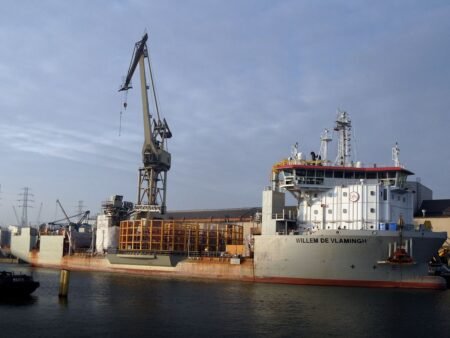The European Commission has launched a competition inquiry into the e-commerce sector in the European Union in the context of the Digital Single Market Strategy. The sector inquiry will focus on those goods and services in which e-commerce is most widespread such as electronics, clothing and shoes, as well as digital content. It will cover all EU Member States.
Advertisement
What is an antitrust sector inquiry?
Under the Antitrust Regulation (Council Regulation 1/2003), the Commission has the power to conduct inquiries into a particular sector of the economy (or a particular type of agreements across various sectors) where the level of trade between Member States, rigidity of prices or other circumstances suggest that competition may be distorted within the internal market.
In the course of a sector inquiry, the Commission can request information from businesses or industry associations and carry out inspections. Fines may be imposed on businesses and industry associations that supply incorrect or misleading information.
Carrying out a sector inquiry does not in itself imply that there are grounds for enforcement action against specific businesses. However, the inquiry might suggest the existence of practices that breach EU competition rules on restrictive business practices or abuse of dominant market positions (Articles 101 or 102 of the Treaty of the Functioning of the European Union – TFEU). In case the Commission identified specific concerns, it can open case investigations to ensure compliance with EU competition rules.
This sector inquiry follows a number of other antitrust inquiries carried out in recent years in fields including pharmaceuticals, energy and financial services. More details are available on DG Competition’s sector inquiry webpage.
Why launch this sector inquiry?
A well-functioning e-commerce sector is an important aspect for economic growth. E-commerce can reduce transaction costs, bring down prices and broaden consumer choice. The growth of e-commerce in the EU reflects these benefits, with about 50% of the EU population having shopped online in 2014. However, only 15% of the population shopped online from a trader of goods or a provider of services based in another Member State.[1]
There are a number of reasons which can explain the slow uptake of cross-border e-commerce in the EU, including language barriers, consumer preferences and differences in legislation across Member States. The Digital Single Market Strategy identifies a number of public (i.e. regulatory) barriers that hinder cross-border e-commerce.
However, there are also indications that undertakings active in e-commerce may restrict cross-border online trade within the EU by deliberately creating private and in particular contractual barriers:
- A recent report showed that 32% of retailers cited contractual restrictions in their distribution agreements as the reason for refusing to supply services cross-border.[2]
- In another 2015 survey into wholesale and retail sales of goods and services in the EU, 19.1% of companies already active in cross-border e-commerce and 29% of companies that are not yet active, declared that suppliers restrictions affecting sales on online platforms constituted or would constitute a problem for their business when selling online (Flash Eurobarometer 413).
The purpose of the e-commerce sector inquiry is to gain more market knowledge in order to better understand the nature, prevalence and effects of these and similar barriers erected by companies that hinder cross-border e-commerce and to assess them in the light of EU antitrust rules.
What is the link between this sector inquiry and the Digital Single Market strategy?
As explained above, the Commission’s Digital Single Market strategy has identified and proposes actions to address a number of public (i.e. regulatory) barriers that hinder cross-border e-commerce. In parallel, the sector inquiry will follow indications and gather information on barriers to trade across national borders set up by companies supplying goods and services online.
What is the timeline for the sector inquiry?
In the coming weeks, the Commission will send requests for information to a range of stakeholders throughout the EU. The companies concerned may include, for example, manufacturers and wholesalers as well as e-commerce retailers. Under EU antitrust rules the Commission can require companies and trade associations to supply information, documents or statements as part of a sector inquiry.
The Commission expects to publish a preliminary report for consultation in mid-2016. The final report is expected in the first quarter of 2017.
Notes
[1] European Commission, Eurostat, ICT survey of Households and Individuals
, 2014.
[2] ECC Net report on the application of Articles 20.2 and 21 of the Services Directive







